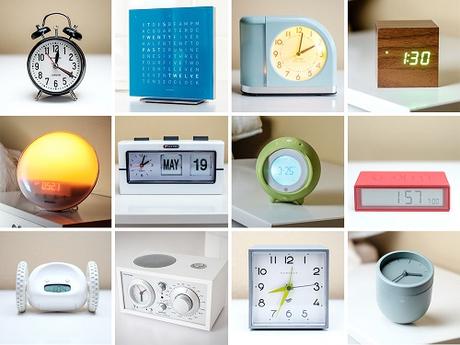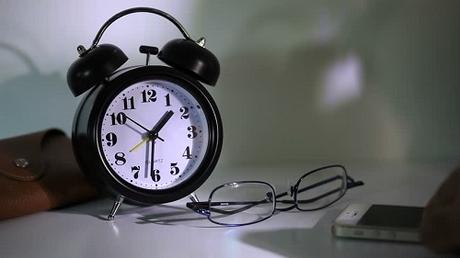We have all been there before. You have to wake up early in the morning. Maybe you have to get a project done in time, or perhaps you just have to get to work earlier than usual. Maybe it's even a regular day, and you simply want to make sure that you get to work on time so that your boss doesn't throw a fit.
If you're trying to get yourself out of bed with relative ease, there is really only one option, and that is the alarm clock. But there are many different kinds of alarm clocks and each of them is useful in their own way. You may be wondering what might be the most efficient way to get yourself out of bed.

There are two options which are more popular than others, at the moment. You will find that regular alarm clocks are always useful, but there is a new kind of clock that threatens to overtake it. This alarm clock is the smartphone alarm clock, which offers alarm clock functionality on your phone.
Let us take a minute to look at each of these types of alarm clocks individually before we pit them against each other and find out which one is the best option.
Regular Alarm Clock
First off, we will be taking a look at the traditional alarm clock. There are many different types of alarm clocks which can be classified as standard, so we will go over some of the options. One of the better-known alarm clock types is the analog alarm clock. These are what you would first imagine when you think of a classic alarm clock.
The analog alarm clock is usually preferred due to its combination of style and reliability. While many digital alarm clocks can match an even surpass analog alarm clocks when it comes to reliability, you will find that they still tend to be perceived as longer lasting.
While regular alarm clocks are a little lacking when it comes to extra features, you will find that they do their job well. One of these alarm clocks can easily be set to whatever time you would like to wake up by turning a dial placed in the back of the clock's housing. This will turn a fourth hand that will display the chosen wakeup time.

The next type of alarm clock that you will usually come across is the digital alarm clock. These clocks, unlike analog clocks, can be more straightforward to see when first waking up since they implement a digital display. Instead of using the traditional clock hands, they will just show the user a readout of the time.
Digital alarm clocks may end up being a little more complicated to set up when they are first purchased, but you will find that they require little adjustment once they have been set. Some digital alarm clocks will even allow you to set multiple alarms at the same time.
The next type of alarm clock that we will look at is the radio alarm clock. Unlike regular alarm clocks, which usually have a set wake-up tone, you will find that these alarms can be set to play a chosen radio station, this will allow you to wake up to your favorite music.
Some radio alarm clocks will allow you to upload your own music so you can wake up to a specific track. All alarm clock variants which operate digitally will typically come with a snooze function. Some older types of analog alarm clocks may not have a snooze button at all.
Smartphone Alarm Clock
Alarm clocks that are available on smartphones have become more and more prevalent with the rise of smartphones over the past decade. While cell phones before smartphones came equipped with alarms, many of them were difficult to set in the first place and proved to be unreliable.
A smartphone alarm clock can either come installed on your phone, which is the most common type, but you can also find alarm clock apps which are made by third-party developers. These apps usually grant you a little more freedom in your clock settings, such as choosing a particular radio station.

Some phones will even come equipped with alarm clocks that notify you when you should be going to bed and what time you should be waking up at to ensure that you get a good deal of sleep. This is a helpful feature because a substantial chunk of sleep every night is integral to remaining in good health.
Smartphones will usually also come equipped with other, related functions, such as a timer for shorter duration alarms and a stopwatch. These may come packaged in a single clock application, or they can be found separately on your phone.
Which Is The Better Option?
You may be wondering what the best choice is if you want to wake up on time. Between the choice of a smartphone alarm clock and a regular alarm clock, we would argue that the latter is the better choice. There are a few reasons why you would prefer a traditional alarm clock in this close-fought competition.
The main reason for which you would want a regular alarm clock is that it will be more reliable than your smartphone. Unlike the phone, an alarm clock will usually not run out of battery power and let you down on a big day. Some alarm clocks will also give you more features and will be louder than a smartphone.
We would argue that volume is another issue which proves the regular alarm clock superior because you simply can't hear your phone some mornings. While a phone wins out when it comes to convenience since you won't have to buy a separate alarm, you may find that it lacks reliability in waking you up.
Conclusion
While the competition was close, we have to say that there is no better choice than a regular alarm clock if you want to ensure that you wake up with no trouble. If you have any questions, feel free to ask us in the comments.
Resources:
- WikiHow
